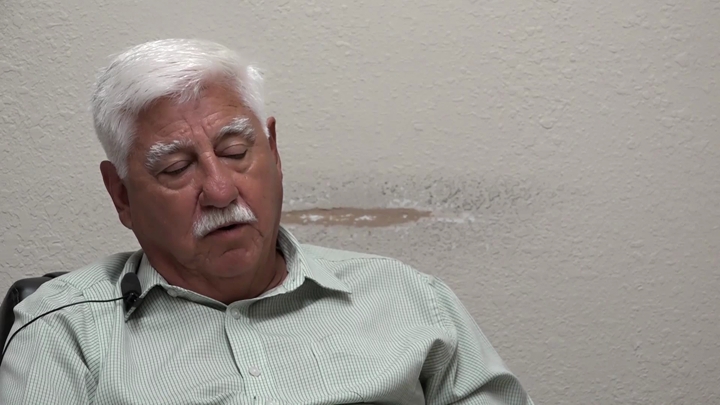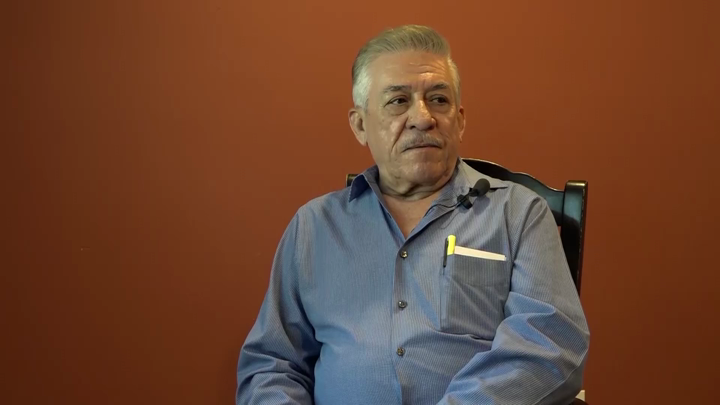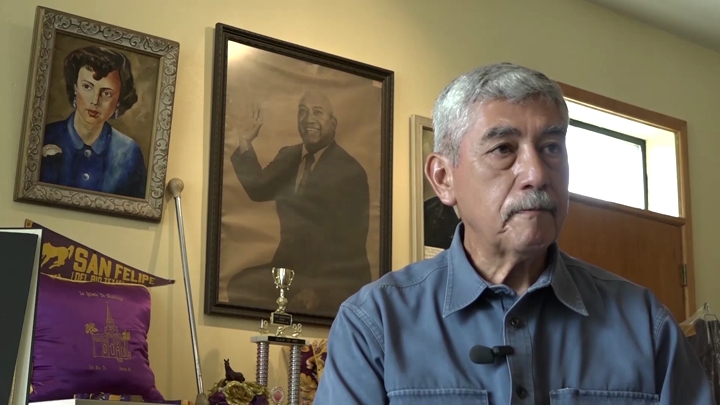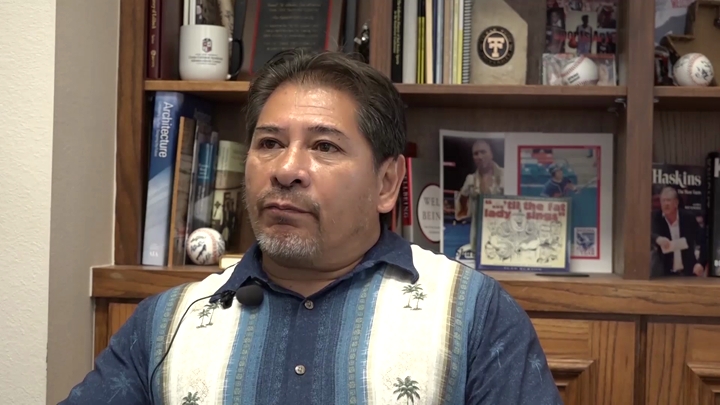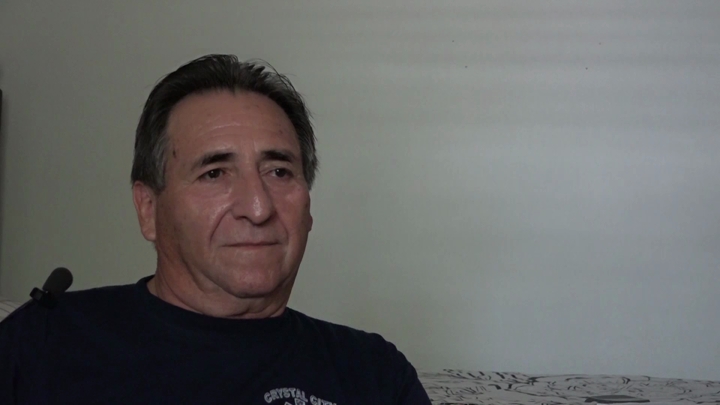Harrington / Biographical Information - Growing Up in Michigan
sign up or sign in to add/edit transcript
Arionus: Please speak a little bit about the years Michigan, are you from Michigan? A little bit about your family? And then why you went into the church? Harrington : Okay so, I am a family of six kids, I was the oldest and started off in Lansing, Michigan. I lived in the Irish side of town. My grandmother was very religious and very caring for her grandchildren; she only lived a couple blocks from us. She actually had a big influence on my life. Because she really believed in the gospel and loved it, she never drove but she would walk miles to visit someone or give people money. I even had her on the picket line once, we were doing a boycott of Gallo wine. She was in her 80s out there with the UFW flag. She was a big inspiration to me and now I see in retrospect. And then, I went to a Catholic grade school. From there I went to seminary. In those days you started in high school. I did that in high school and college. And eventually left because of the work that I wanted to do you did not fit into the hierarchy of the church. In the meantime, and the summers I had worked with migrant farm workers who came from Texas. Most of the farmworkers, we had about 70 to 100,000 that migrated into Michigan. In the summers to pick berries and those kinds of crops. It was really kind of strange how this happened, when I was in seminary, our sophomore year we had to pick a language. Our options were either German or Spanish. It was run by Germans, the seminary. But a group of us, we were already sort of wild turkeys so to say, we said if we ask for French they will give it to us. So we did but of course they did not, but then they randomly assigned us. I got randomly assigned to Spanish. So during the summers, the church started to look for people to do social work with migrant farm workers. And I thought man this is a great thing to do since I am studying Spanish and that kind of thing. So I started working with migrant workers during the summer and I think I ended up doing that for seven years or so. So what happened, is what happened when I went to grad school and studied philosophy and got a masters , was enrolled in a PhD program. Then just woke up one morning and said law school. I remember it so vividly. I just sat right up. I used to watch Underdog, which was a cartoon in those days. It was sort of a satirical cartoon. I just remember sitting up in bed and said law school. I had no contact with law or anything like that. So that is what I did. And I was there for three years. I decided and committed myself at the end of law school to go down to South Texas and work in the valley where the farmworkers. Arionus : Before we get to Texas, can we go back to the work with migrant farm worker’s in Michigan? Can you describe the Colonia’s in southwest Michigan, what you saw there, and how did it impact you? Harrington : Well, it was terrible living conditions they were basically shacks the farmers had on their lands for the growers. You would have one single room shack and have a family living in it, as many as 12 people living in it. When it rains, which I did a lot in Michigan, it was medical issues, and you can imagine with the medical issues came up when you had that many people living together. You probably had 70, anywhere from 70 to 100 people in a shack. There were horrific conditions. So there was a movement just beginning at that time that I played into with the church. That was to inspect the camps and impose regulations on them- toilets all that kind of stuff, right. It was also the beginning of the farm worker movement in the country. So Cesar Chavez was beginning to organize. There were some really good people involved and governments in Michigan and were interested in helping. Also wages were terrible people never got paid, even the minimum wage. The conditions were really bad, and the work was really hard. I tried it once. Went out to pick strawberries and it’s hard, you know. You start before dawn and then you stop around one or two because it’s so hot and you’re so tired and your back aches. So the conditions were bad. Basically, we were involved in helping to organize the workers and make sure they were protected and report violations.
| Interview | Interview with Jim Harrington |
| Subjects | Family |
| Family › Extended Family Networks | |
| Migration › Migration from Texas to Northern U.S. | |
| Migration › Seasonal Migration | |
| Migration › Migrant Labor | |
| Work › Working Conditions | |
| Work › Agricultural Work | |
| Housing › Sub-standard Housing | |
| Religion | |
| Religion › Spirituality | |
| Education | |
| Education › Secondary Education | |
| Education › Higher Education | |
| Direct Action › Picket lines | |
| Work › Compensation | |
| Geography › Colonias | |
| People › Chavez, Cesar | |
| Family › Siblings | |
| Tags | sign up or sign in to add/edit tags |
| Interview date | 2016-06-13 |
| Interview source | CRBB Summer 2016 |
| Interviewees | Harrington, Jim |
| Locations | Lansing, MI |
| Duration | 00:06:12 |
| Citation | "Biographical Information - Growing Up in Michigan ," from Jim Harrington oral history interview with , June 13, 2016, Austin, Civil Rights in Black and Brown Interview Database, https://crbb.tcu.edu/clips/5487/biographical-information-growing-up-in-michigan, accessed February 10, 2026 |


